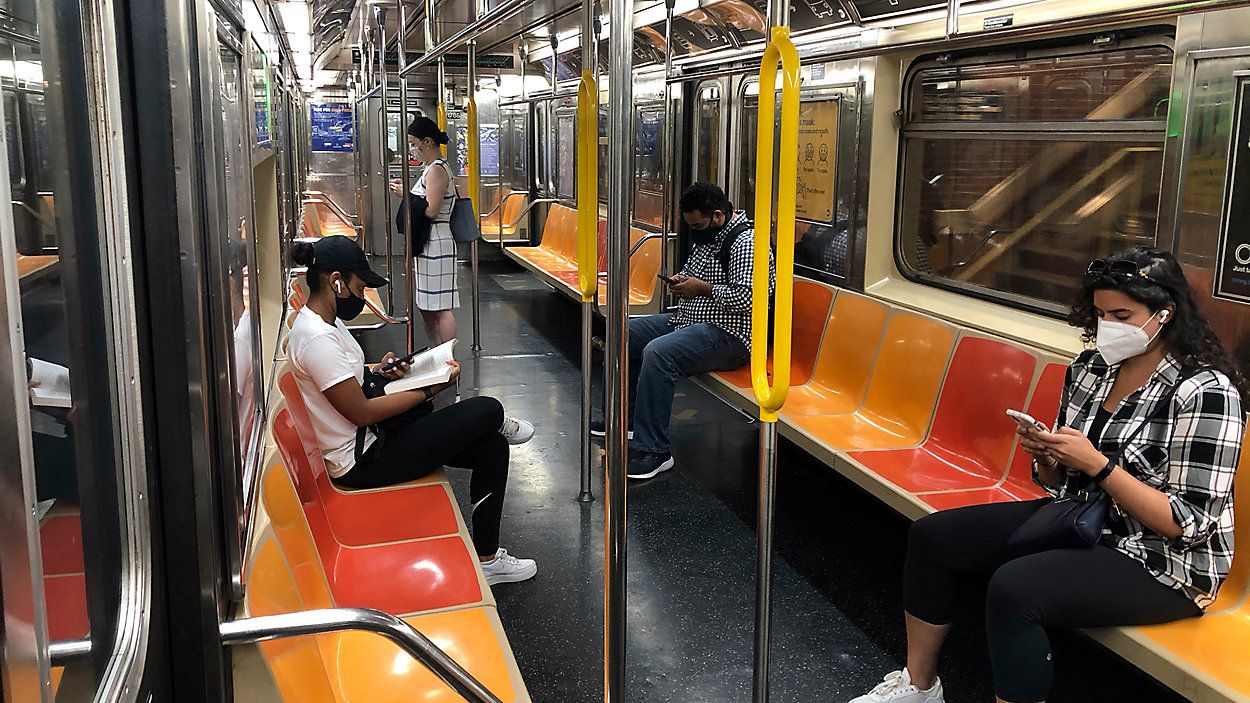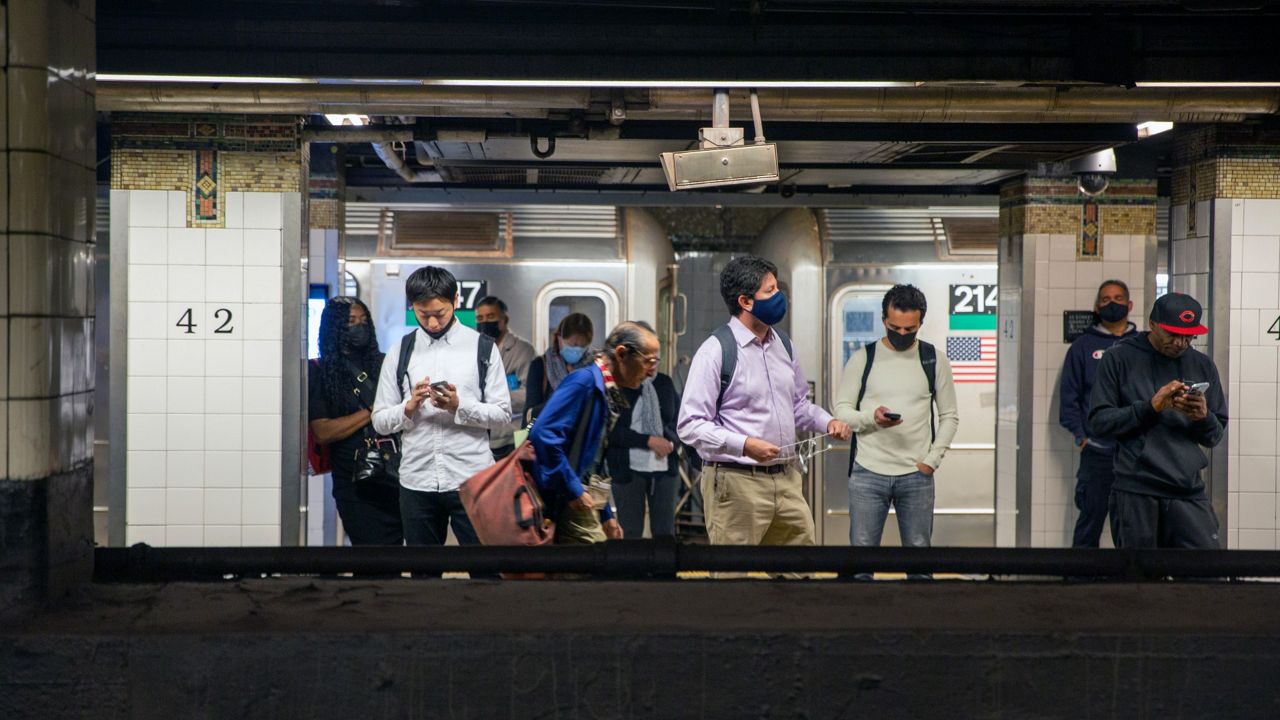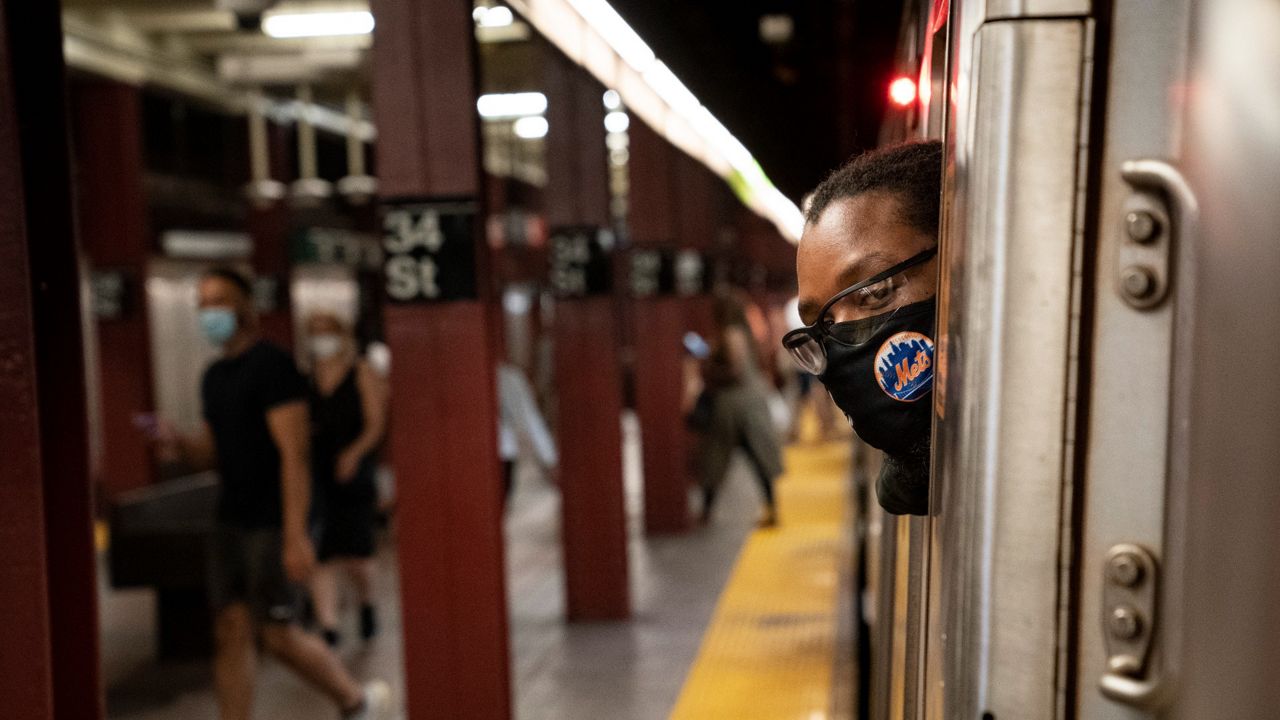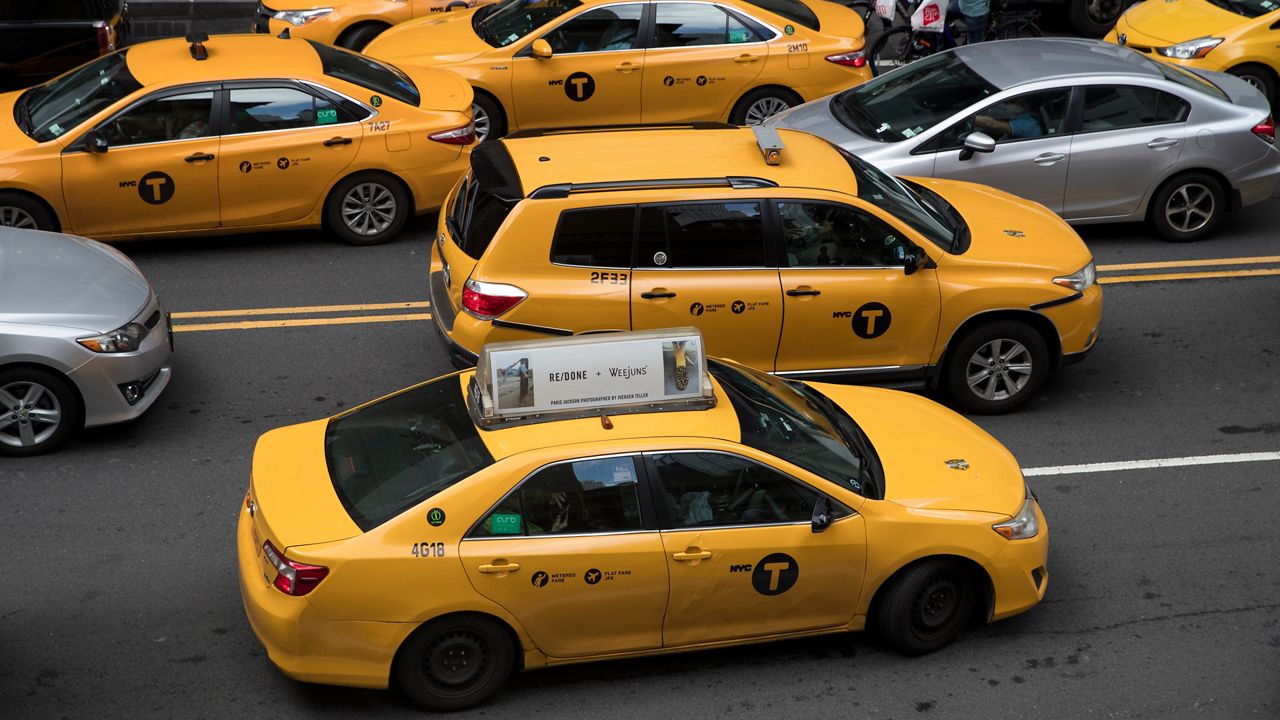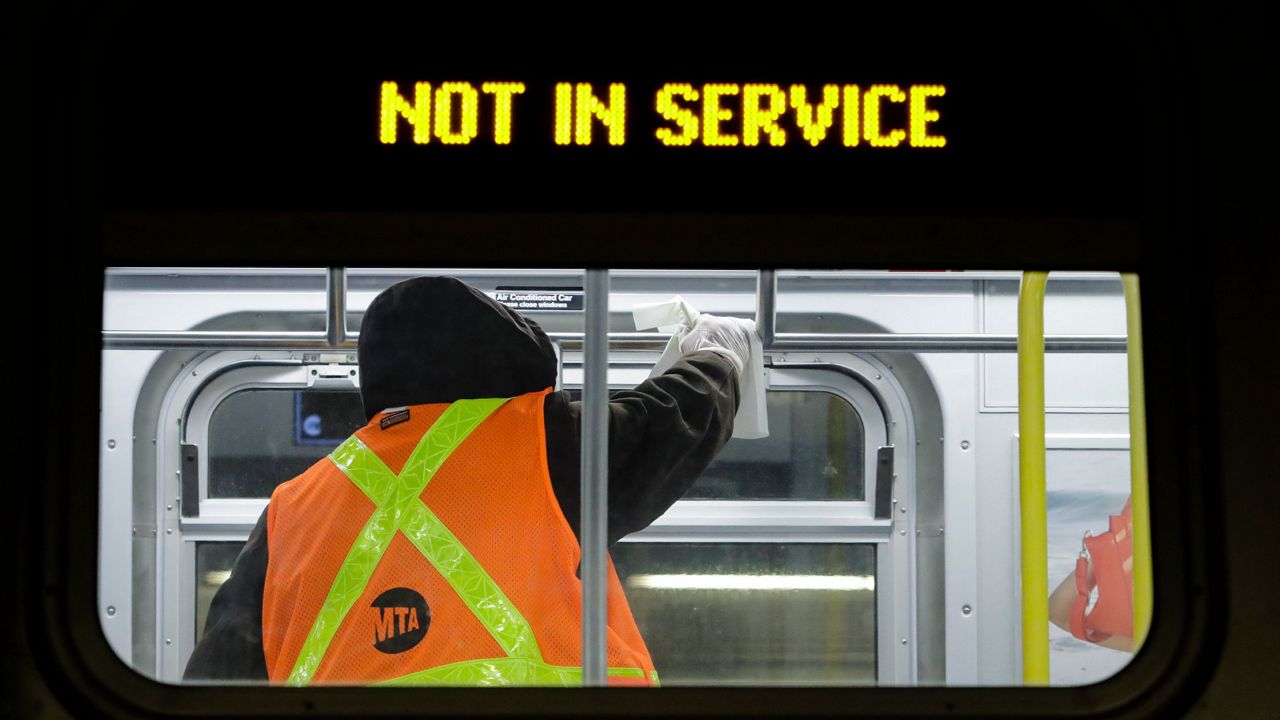The coronavirus stimulus deal reached in Congress will include more than $4 billion in funding for the MTA, Sen. Charles Schumer announced Sunday.
I fought for mass transit in this #COVIDrelief bill for riders and workers
— Chuck Schumer (@SenSchumer) December 21, 2020
I'm proud we succeeded for transit systems across America
I’m proud to deliver more than $4 billion in relief for @MTA
Thank you to all of the riders and workers who stood together to make this possible
The agency has been struggling for funding since the pandemic hit in March. Daily subway ridership has been down about 70%.
The MTA approved its latest budget Wednesday, holding off on proposed "doomsday" cuts in anticipation of receiving funding from the stimulus agreement.
MTA Chairman and CEO Pat Foye said the stimulus funding will allow the MTA "to get through 2021 without devastating service cuts and layoffs of over 9,000 colleagues."
But Foye added that the MTA still faces an $8 billion deficit. The agency has requested a total of $12 billion in federal aid to cover gaps through 2024.
"We hope any future bills will fully offset the impact of the pandemic as there can be no recovery without a strong public transportation system serving as the engine for progress," Foye said.
Speaking to NY1's Roma Torre on Friday, New York City Transit Interim President Sarah Feinberg said $4 billion would only buy the MTA some time.
“It obviously doesn't solve the bigger picture, but it gets us through the end of the year and beyond," Feinberg said. "I think the fact that President-elect Biden is coming in with his administration is only good news for transit agencies like ours. They absolutely understand the issues at play.”
Feinberg said on Friday that without adequate relief funding, layoffs and drastic service cuts will only hurt the essential workers who just got us through the COVID-19 crisis.
Riders Alliance, a transit advocacy group, praised the announcement.
"In a harsh political climate, our transit champions Senator Schumer, Representative Jeffries, and their colleagues in the New York delegation held strong and delivered real relief for riders -- more than $4 billion to keep buses, subways, commuter rail and paratransit running," Riders Alliance Executive Director Betsy Plum said in a statement.
"Riders organized all across the region and nation and won a reprieve from devastating cuts," the statement goes on to say.
In terms of direct financial relief, the bill will provide $600 to any individual making under $75,000 a year - half the amount that was provided in the first stimulus agreement.
Schumer said the bill also includes an eviction moratorium, help for renters, billions of dollars for food stamps and an additional $300 a week in unemployment benefits - which is also half of the amount provided in the first stimulus agreement.
What is less clear is the impact the new stimulus will have on local businesses.
In a conference call Sunday, Schumer said the Paycheck Protection Program for small businesses will be revived.
According to a press release from Schumer and House Speaker Nancy Pelosi, the deal "includes over $284 billion for first and second forgivable PPP loans, expanded PPP eligibility for nonprofits and local newspapers, TV and radio broadcasters, key modifications to PPP to serve the smallest businesses and struggling non-profits and better assist independent restaurants."
The bill also includes the Save Our Stages bill, which includes billions of dollars in funding for live performance venues and other cultural institutions across the country. Schumer said on a conference call that money for Broadway is included in that funding.
Andrew Rigie, executive director of the business advocacy group Hospitality Alliance, praised the inclusion of Save Our Stages in a tweet. But he criticized the deal for not including the Restaurants Act, which would have provided extra funding to help out the struggling industry.
PPP is a bandaid...and ONCE AGAIN the federal government failed small businesses across the country by not including the #RESTAURANTSAct in the stimulus, even though it passed the House and had bi-partisan support by more than half of the Senate. #SaveRestaurants @theNYCalliance
— Andrew Rigie (@AndrewRigie) December 20, 2020
Schumer did not directly address the Restaurants Act in the conference call, but he did say the agreement was "hardly perfect."
"It's not everything everyone wants, but it's a lot better than not doing anything at all," he said.




